
While cognitive functions in patients with Parkinson disease were only slightly impacted by the coronavirus disease 2019, notable effects on urinary issues and fatigue may warrant adjustments to therapy, according to study findings.

While cognitive functions in patients with Parkinson disease were only slightly impacted by the coronavirus disease 2019, notable effects on urinary issues and fatigue may warrant adjustments to therapy, according to study findings.

Patients with B-cell non-Hodgkin lymphomas and B-cell acute lymphoblastic leukemia can benefit greatly from chimeric antigen receptor (CAR) T-cell therapy, but providing that therapy has become much more difficult in the age of coronavirus disease 2019 (COVID-19).

Patients between the ages of 18 and 39 who are diagnosed with solid-tumor cancers are more likely than the general population to have germline mutations that could make them more susceptible to secondary primary cancers, according to new research.
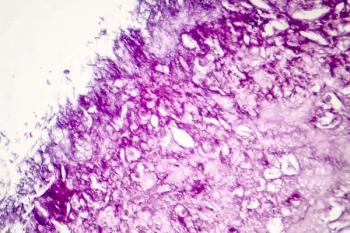
Having lower socioeconomic status, comorbidities, or being covered by Medicare was associated with less receipt of immunotherapy for stage III melanoma.

In its first briefing in 2 months, the White House Coronavirus Task Force addressed rising cases of coronavirus 2019 (COVID-19) and positive test rates across states in the South, as well as the new data that show the majority of new cases are occurring in younger Americans.

While biologics may have improved outcomes in rheumatoid arthritis (RA), they also have higher costs and adverse events, and patients are more likely to request dose reductions or drug holidays.
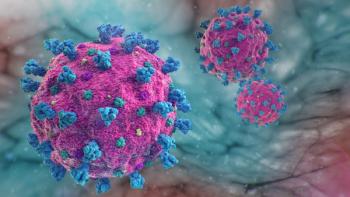
The use of disease-modifying therapy (DMT) was associated with a lower risk of hospitalization for patients with coronavirus disease 2019 (COVID-19), and neurological disability, age, and obesity were independent risk factors for more severe cases of infection for patients with multiple sclerosis (MS).

Coverage of our peer-reviewed research and news reporting in the health care and mainstream press.

There are thousands of rare diseases, but they each affect so few patients that diagnosis and treatment can be delayed by years. Researchers examined how machine learning has been studied in rare diseases and identified areas of opportunity where future studies can improve care and treatment of rare diseases.
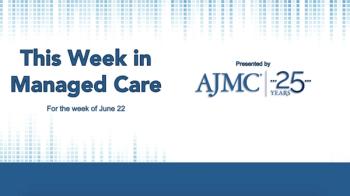
This week, the top managed care news included CMS proposing rules for value-based contracting in Medicaid; claims data highlighting racial disparities in COVID-19 effects; an interview with Anthony Fauci, MD, on the progress made against HIV.

The CDC has updated its guidance as to who is at risk for more severe cases of coronavirus disease 2019 (COVID-19); Texas suspended its economic reopening in the wake of surging COVID-19 cases; HHS releases updated organ donation rules.
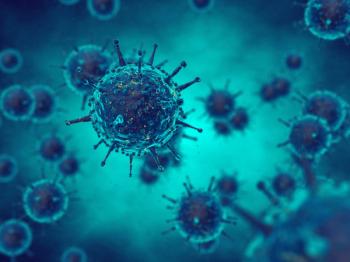
Minimal residual disease (MRD) status has been shown to be a better indicator of the prognosis of a patient with multiple myeloma (MM) than “complete remission.” Yet, it’s still not widely used in the clinic. A new article examines the problem.

Results from an analysis of patients with breast cancer and coronavirus disease 2019 (COVID-19), from Institut Curie hospitals in France, show that mortality is determined more by comorbidities than previous or current treatment for the cancer.

A review on the effects of Janus kinase (JAK) inhibitors for the treatment of myelofibrosis, including the first approved, ruxolitinib, and others currently in development.

A report, to appear in the September 2020 Health Affairs, says the losses could be higher, as much as $18 billion, if there is a second wave of infection in the fall or telehealth regulations eased at the start of the pandemic do not continue.

The Trump administration and Republican state attorneys general called on the Supreme Court to overturn the entire Affordable Care Act (ACA, also known as Obamacare). President Trump has endorsed repealing the ACA since his 2016 campaign, while Republican lawmakers have largely opposed the law since its inception in 2010.

Bayer AG agreed to settle the majority of claims alleging its product Roundup causes blood cancer; Census Bureau data show a historic demographic shift; a federal lawsuit claims Regeneron funneled millions of dollars to a charity.
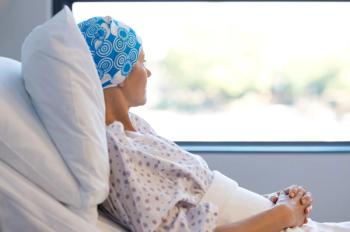
The savings occurred even while more patients in the health system were enrolling in clinical trials, according to an abstract presented during the American Society of Clinical Oncology 2020 Virtual meeting.

A coauthor of the study said that if the noninvasive test was used more widely, before kidney cancers have spread, fewer people would die from the disease.

Couples sleeping together, as opposed to separately, was associated with increased rapid-eye movement (REM) sleep and greater sleep synchronization, potentially caused by a positive feedback loop, according to study findings published today.

Despite advances in therapeutics and treatment strategies for rheumatoid arthritis (RA) that impact well-being, patients in clinical remission still report reduced well-being, according to an abstract presented at the European Congress of Rheumatology of the European League Against Rheumatism.
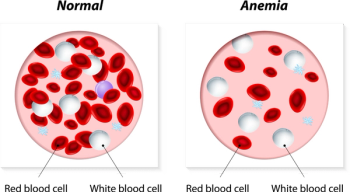
A worse prognosis in patients with heart failure has possibly been linked to having at least 1 anemic episode, or a drop in hemoglobin levels, as was a greater risk of hospitalization and mortality.
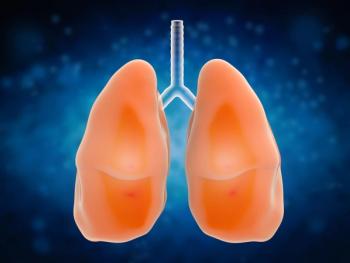
A trial of 2 doses of an inhaled glucocorticoid in a fixed-dose triple therapy for chronic obstructive pulmonary disease (COPD) appeared beneficial compared with 1 of 2 dual therapies.

Patients who undergo pneumatic retinopexy for rhegmatogenous retinal detachment repair report superior vision-related functioning scores and higher mental health scores during the first 6 months post operation, compared with those who undergo pars plana vitrectomy, according to a study published in JAMA Ophthalmology.

The recent surge in cases of coronavirus disease 2019 alarms public health officials; the FDA launches a new cancer clinical trial program; the Federal Communications Commission may change its National Suicide Prevention Hotline number.

Individuals who self-report a problem with drugs, especially opioids, are more likely to have uncontrolled HIV, to not be adherent to antiretroviral therapy, and to engage less in primary care for their infection but more in risky behaviors, including sharing needles and having multiple concurrent sexual partners.

With the growing uncertainty of the coronavirus disease 2019 (COVID-19) pandemic and the emergence of services such as telehealth and behavioral health, PwC's Health Research Institute provided 3 spending scenarios for employers managing the insurance market. It projects a 4% to 10% increase in the medical cost trend for 2021 based on these scenarios, said Ben Isgur, MPA, Health Research Institute leader at PwC.

The FDA granted accelerated approval to selinexor (Xpovio, Karyopharm Therapeutics) for the treatment of adult patients with relapsed or refractory diffuse large B-cell lymphoma (DLBCL). The oral treatment is to be used after at least 2 lines of systemic therapy.

Elevated insulin levels, which have been shown to promote tumor growth, due to insulin resistance may be linked to a greater prevalence of invasive breast cancer among black women compared with white women.

Patients with rheumatic disease have a 2-fold increase in migraine prevalence and a 3-fold increase in neuropathic pain prevalence compared with the general population, according to a study published in the Journal of Clinical Medicine.

259 Prospect Plains Rd, Bldg H
Cranbury, NJ 08512
© 2025 MJH Life Sciences®
All rights reserved.
